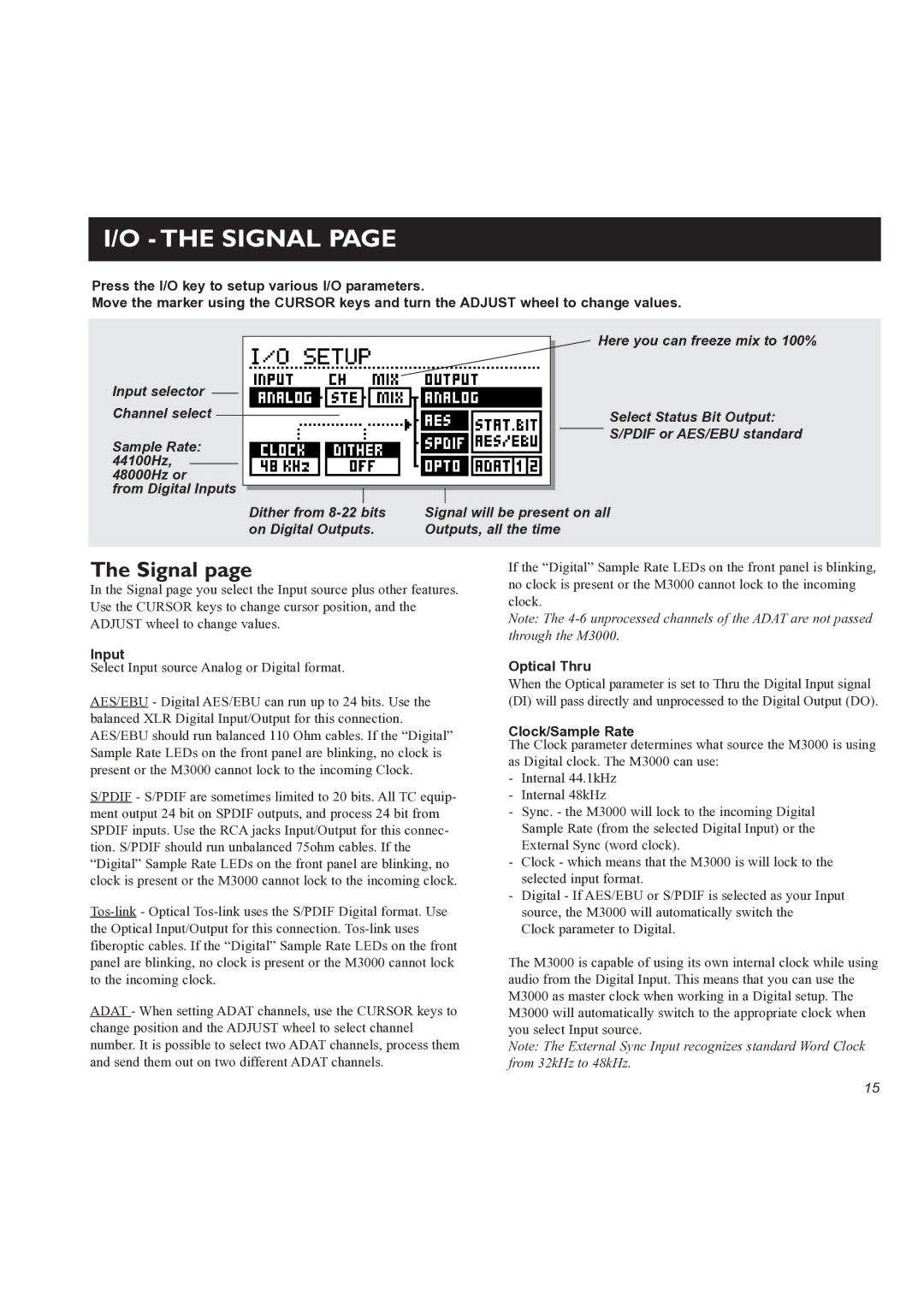
I/O - THE SIGNAL PAGE
Press the I/O key to setup various I/O parameters.
Move the marker using the CURSOR keys and turn the ADJUST wheel to change values.
Input selector Channel select
Sample Rate: 44100Hz, 48000Hz or
from Digital Inputs
Here you can freeze mix to 100%
Select Status Bit Output:
S/PDIF or AES/EBU standard
Dither from | Signal will be present on all |
on Digital Outputs. | Outputs, all the time |
The Signal page
In the Signal page you select the Input source plus other features. Use the CURSOR keys to change cursor position, and the ADJUST wheel to change values.
Input
Select Input source Analog or Digital format.
AES/EBU - Digital AES/EBU can run up to 24 bits. Use the balanced XLR Digital Input/Output for this connection. AES/EBU should run balanced 110 Ohm cables. If the “Digital” Sample Rate LEDs on the front panel are blinking, no clock is present or the M3000 cannot lock to the incoming Clock.
S/PDIF - S/PDIF are sometimes limited to 20 bits. All TC equip- ment output 24 bit on SPDIF outputs, and process 24 bit from SPDIF inputs. Use the RCA jacks Input/Output for this connec- tion. S/PDIF should run unbalanced 75ohm cables. If the “Digital” Sample Rate LEDs on the front panel are blinking, no clock is present or the M3000 cannot lock to the incoming clock.
ADAT - When setting ADAT channels, use the CURSOR keys to change position and the ADJUST wheel to select channel number. It is possible to select two ADAT channels, process them and send them out on two different ADAT channels.
If the “Digital” Sample Rate LEDs on the front panel is blinking, no clock is present or the M3000 cannot lock to the incoming clock.
Note: The
Optical Thru
When the Optical parameter is set to Thru the Digital Input signal (DI) will pass directly and unprocessed to the Digital Output (DO).
Clock/Sample Rate
The Clock parameter determines what source the M3000 is using as Digital clock. The M3000 can use:
-Internal 44.1kHz
-Internal 48kHz
-Sync. - the M3000 will lock to the incoming Digital Sample Rate (from the selected Digital Input) or the External Sync (word clock).
-Clock - which means that the M3000 is will lock to the selected input format.
-Digital - If AES/EBU or S/PDIF is selected as your Input source, the M3000 will automatically switch the
Clock parameter to Digital.
The M3000 is capable of using its own internal clock while using audio from the Digital Input. This means that you can use the M3000 as master clock when working in a Digital setup. The M3000 will automatically switch to the appropriate clock when you select Input source.
Note: The External Sync Input recognizes standard Word Clock from 32kHz to 48kHz.
15
